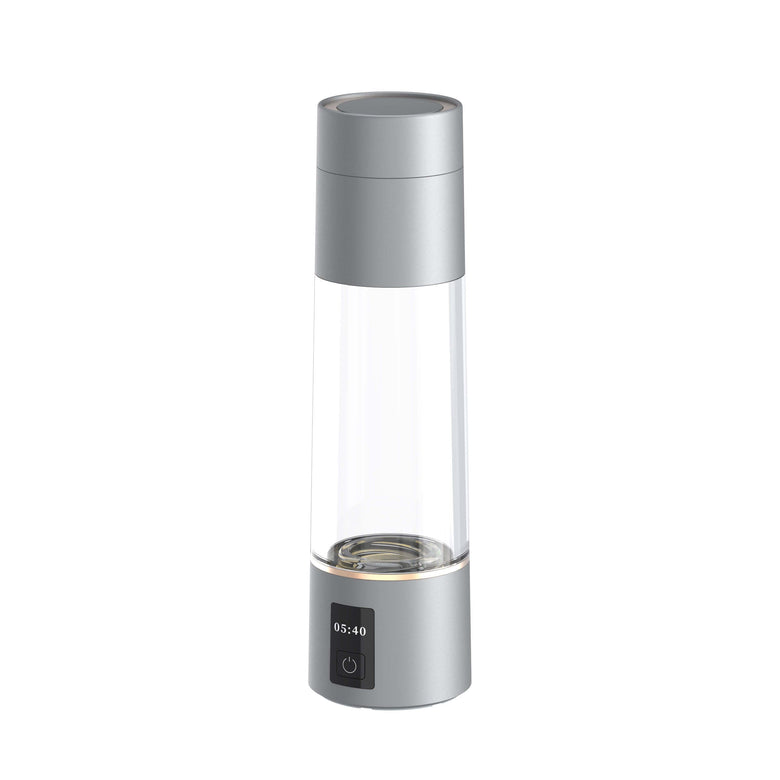Ion Bottles vs Hydrogen Water Bottles
Updated
John Smith
Staff Writer
Our Commitment to Accuracy and Objectivity
Ocemida is committed to delivering reliable and unbiased information. Our editorial team, comprised of experienced editors and medical experts, meticulously reviews every article and guide to ensure the content is accurate, up-to-date, and free from bias.
Rigorous Fact-Checking Process
To uphold the highest standards of accuracy, we adhere to the following fact-checking guidelines:
Trusted Sources: We only cite reputable sources, such as peer-reviewed journals, government reports, academic and medical associations, and interviews with credentialed healthcare professionals.
Evidence-Based: All claims and data are supported by at least one credible source. Each article includes a comprehensive bibliography with full citations and links to the original sources.
Internal Linking: While we may include internal links to other relevant Ocemida pages for better navigation, these links are never used as primary sources for scientific information.
Expert Review: A member of our medical or scientific expert team provides a final review of the content and cited sources for all articles and product reviews related to medical and health topics.
By following these rigorous standards, Ocemida strives to provide readers with reliable and informative content.
Share with a friend
Key Takeaways
- "Ion bottle" is often misused in marketing since some companies label hydrogen water generators this way even though they're different from true water ionizers, which actually split water into alkaline and acidic streams.
- Choose based on your goals: water ionizers adjust pH levels and create alkaline/acidic water streams, while hydrogen generators focus on infusing water with molecular hydrogen for antioxidant properties.
- You can identify the device type by looking for specific features: true water ionizers have separate outlets for acidic and alkaline water, whereas hydrogen generators typically have gas release vents and emphasize "hydrogen-rich" content in their marketing.
The "Ion Bottle" Confusion: Water Ionizers vs. Hydrogen Water Generators
Having spent years researching water treatment technologies, I've noticed significant confusion around these products. Let me help clarify the key differences and guide you through making an informed choice.
You might have come across the term "ion bottle" in your search for these products. This terminology has led to some confusion in the market, and here's why:

The popularity of "ionized water" and "water ionizer" in online searches has led some companies to market their hydrogen water products under the "ion bottle" label. While this marketing strategy may be effective, it often misleads consumers about the actual functionality of the product. Not all "ion bottles" are true water ionizers.
| Feature | Water Ionizer | Hydrogen Water Generator |
|---|---|---|
| Primary Function | Separates water into alkaline and acidic streams | Infuses water with molecular hydrogen |
| pH Change | Significant (pH 8.5-10 for alkaline output) | None |
| Energy Usage | Higher (200-250W typical) | Lower (30-50W typical) |
| Maintenance | Regular cleaning and plate replacement | Minimal maintenance required |
| Cost Range | $1,000-3,000 | $200-300 |
Understanding Ionization
Ionization is a fundamental electrochemical process where water molecules are split into positively and negatively charged ions through electrolysis. This occurs when an electric current passes through water, causing molecules to dissociate and separate. During this process, water (H2O) breaks down into hydrogen ions (H+), hydroxide ions (OH-), and other trace mineral ions. The separation creates two distinct water streams: one with a higher concentration of positive ions (acidic) and another with a higher concentration of negative ions (alkaline).
What Are Hydrogen Water Bottles?
Hydrogen water bottles or generators are devices designed to infuse water with dissolved molecular hydrogen (H2). These machines have gained attention due to the potential antioxidant properties of hydrogen-rich water.
| Feature | Water Ionizer | Hydrogen Water Generator |
|---|---|---|
| Process | Creates alkaline and acidic water streams through electrolysis | Infuses water with molecular hydrogen |
| Construction | Divided chamber with membrane, multiple electrodes | SPE/PEM membrane, titanium electrodes, gas vents |
| Primary Purpose | pH adjustment and ionization |
Increasing dissolved hydrogen concentration |
Making an Informed Choice
When navigating the world of water enhancement technologies, keep these tips in mind:
Check specific features by looking for separate outlets for acidic and alkaline water, which indicates a true water ionizer, or vents for gas release, which suggests a hydrogen water generator. Pay attention to marketing language that emphasizes either "alkaline" and "pH balance" for water ionizers, or "hydrogen-rich" water for hydrogen generators.
Always refer to product manuals or documentation for definitive clarification on whether you're getting a true water ionizer or ion bottle.
Consider your goals - if you're looking to adjust water pH, a water ionizer might be your best choice, while those interested in potential antioxidant benefits might prefer a hydrogen water generator.
The Bottom Line
While both water ionizers (true ion bottles) and hydrogen water generators utilize electrolysis, their designs, functionalities, and potential benefits differ significantly. As a consumer, it's crucial to cut through the marketing noise and understand the core functions of each device, especially when terms like "ion bottle" are used interchangeably.
Remember, the best choice depends on your specific health goals and preferences. Whether you're drawn to the pH-balancing potential of water ionizers or the antioxidant promise of hydrogen-rich water, being well-informed will help you make a choice that aligns with your wellness journey.
Table of Contents









































